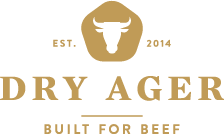Dry Aging Regulations Across Australia

In Australia, food safety regulations are primarily enforced by state and territory health departments, and there can be variations in the specific regulations and guidelines concerning dry aging across the country.
In general, all meat processing activities, including dry aging, are subject to strict hygiene and safety standards.
Meat establishments are typically required to comply with the Australia New Zealand Food Standards Code, which outlines regulations related to the handling, processing, and sale of food products.
Each state and territory may have additional requirements or specific guidelines for dry aging processes.
For instance, in New South Wales, businesses involved in dry aging may need to adhere to the Food Act 2003 and the Food Regulation 2015.
This could include maintaining specific temperature controls, hygiene practices, and labeling requirements.

Similarly, in Victoria, the Department of Health and Human Services enforces regulations related to food safety.
Meat businesses engaging in dry aging would need to comply with the Victorian Food Act 1984 and the Australia New Zealand Food Standards Code.
Within Western Australia, regulations regarding dry aging are overseen by the Department of Health and the Department of Agriculture and Food WA.
While the dry aging regulations within Queensland are managed by local health authorities or the Department of Agriculture and Fisheries.
As of January 2022, South Australia’s regulations concerning dry aging are typically overseen by local health authorities or the South Australian Department of Health.
Australian Capital Territory dry aging regulations are managed by either local health authorities or the ACT Health Directorate.
Concerning dry aging in Northern Territory, these are overseen by local health authorities or the Northern Territory Department of Health.
Given the potential variations in regulations, it is imperative for businesses involved in dry aging meat products to engage with local health authorities and relevant regulatory bodies to ensure compliance with the latest guidelines and standards.
Staying informed about any updates or changes in regulations is essential to maintaining the highest standards of food safety and quality.





